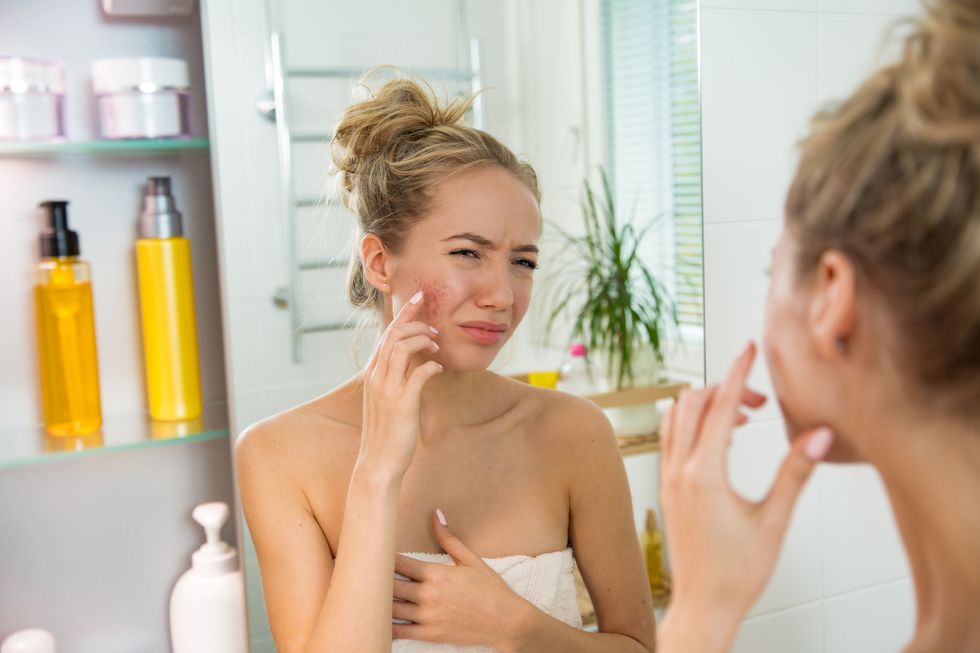
iStock.com/Suzi Media Production
Could You Have Rosacea?
This skin condition causes blemishes, strikes in the adult years, and won't respond to typical acne products.
Jun 12, 2018
Jul 11, 2022
Skin Cancer
Learn about our editorial policies

TUESDAY, June 12, 2018 (HealthDay News) -- Acne isn't reserved for teens, and breakouts can persist into adulthood. But there's another common skin condition -- rosacea -- that causes a different type of blemish, strikes in the adult years, and won't respond to typical acne products.
The first telltale sign of rosacea is the tendency to blush or flush easily. You might notice redness across your nose and cheeks. The discoloration may extend to your forehead, chin and ears, as well as chest and back. Other signs are acne-like breakouts, thick and bumpy skin and, for some, red, irritated eyes.
READ: 5 Natural Remedies for Treating Rosacea
Here are some rosacea warning signs:
Although the exact cause is unknown, rosacea tends to run in families and can be set off by triggers ranging from the sun and stress to wine and spicy foods. Many of the 16 million Americans living with rosacea are between 30 and 50 years old and have fair skin, blonde hair and blue eyes.
Unlike teen acne, which often clears up eventually, untreated rosacea can continue to worsen indefinitely. It also leads to varying degrees of distress and lifestyle restrictions from skipping certain foods to skipping social engagements out of embarrassment.
But there's help available, so don't ignore warning signs or put off seeing a dermatologist and getting treatment. Options include topical treatments, antibiotics and laser therapy to zap visible blood vessels. Also, work with your doctor to pinpoint your unique triggers so you can avoid them and limit flares.
Copyright © 2018 HealthDay. All rights reserved.